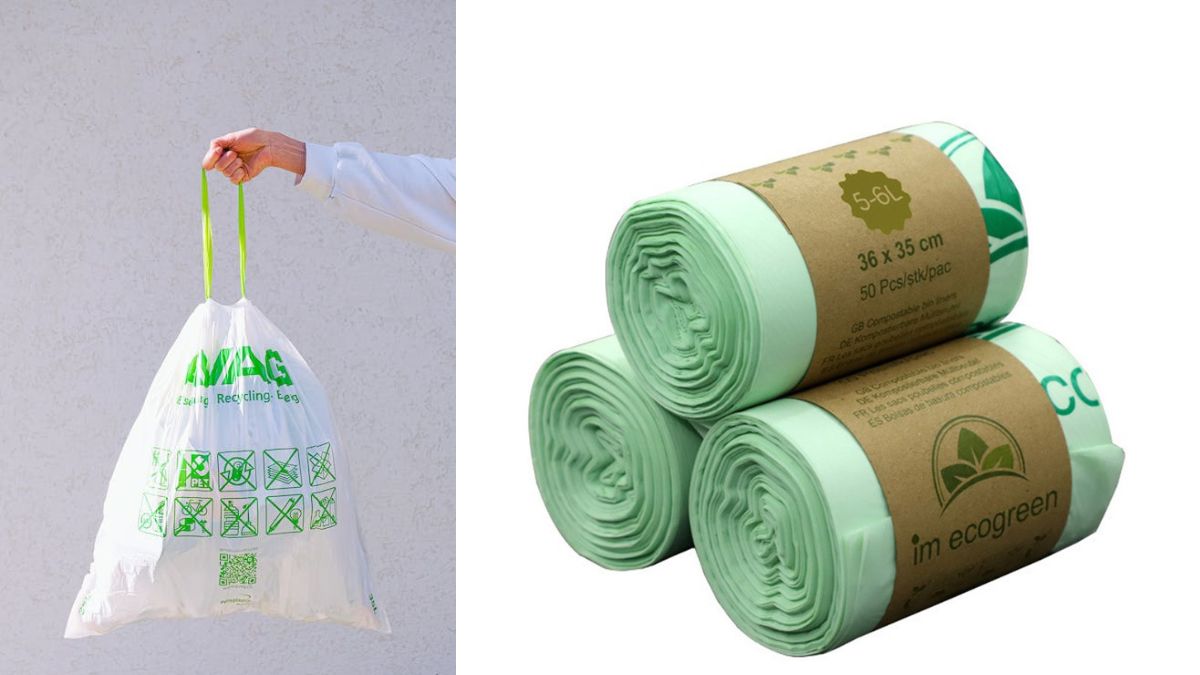There has been a worldwide movement in recent years to find environmentally friendly alternatives to using disposable plastic. Garbage bags, which are used everywhere from homes to offices to municipal trash systems, are a major source of plastic pollution. However, biodegradable waste bags offer hope as a potential alternative. These bags provide a more long-term solution, meeting the call for eco-friendly trash management. This article will discuss the pros and cons of using biodegradable trash bags.
Understanding Biodegradable Garbage Bags
Biodegradable trash bags are designed to break down in the environment over time, releasing little or no harmful byproducts. Compostable plastics, plastics derived from plants, and other organic substances are commonplace in the production of such bags. Biodegradable alternatives are eco-friendlier than the standard plastic bags that take centuries to decompose.
Benefits of Biodegradable Garbage Bags
- Reducing Plastic Pollution: The harmful effects of plastic trash are greatly reduced with the use of biodegradable bags. These bags can biodegrade when thrown away in the right way, cutting down on the quantity of trash and litter made out of plastic.
- Renewable Resources: Renewable materials including cornstarch, sugarcane, and vegetable oils are used in the production of many brands of biodegradable trash bags. Using these supplies encourages less dependence on nonrenewable energy sources like fossil fuels.
- Reduced Carbon Footprint: Greenhouse gas emissions from producing biodegradable trash bags are typically lower than those of conventional plastic bags. This is because biodegradable bags may be made with less energy and from renewable resources.
- Compatibility with Composting: Some compostable biodegradable trash bags can be added to curbside organics collection programs. Together with other organic waste, these bags can decompose into nutrient-rich compost for use in farming and landscaping.
Challenges and Considerations
Although there are many benefits to using biodegradable trash bags, there are a few things to keep in mind:
- Proper Disposal: To ensure proper decomposition, biodegradable bags require special disposal. To fully realize the environmental benefits of these bags, it is essential to follow local waste management guidelines and place them in the appropriate waste streams for disposal.
- Durability: Some biodegradable bags may not be as long-lasting or strong as their plastic counterparts. Manufacturers are working to accommodate consumer demand by making these bags stronger and more durable.
- Cost: Since the production of biodegradable trash bags and the acquisition of sustainable resources might be costlier, they may be more expensive than traditional plastic bags. Competition in pricing is expected to intensify as demand rises and technology improves.
Additional Information
- Regulatory Standards: Regulatory agencies are setting criteria to assure the authenticity and efficiency of biodegradable waste bags in response to rising demand. The compost ability and biodegradability of bags can be verified through certification schemes produced by groups like the Biodegradable Products Institute (BPI) and European Bioplastics. If you want to make sure your bags are up to code, check the packaging for any relevant certificates or labels.
- Consumer Awareness and Education: Educating and informing consumers is essential to achieving broad use of biodegradable waste bags. The advantages of these bags and the correct way to dispose of them must be communicated to the general public. Campaigns, informational materials, and instructional activities can all be successful if governments, environmental groups, and industry work together to spread the word.
- Role of Businesses: When it comes to the widespread use of biodegradable trash bags, businesses, especially those in the retail and hospitality industries, play a pivotal role. Companies that adopt and promote the use of these bags can show their customers that they care about the environment and encourage them to do the same. In order to guarantee the correct disposal and composting of biodegradable bags, businesses should also explore collaborations with waste management firms.
- Composting Infrastructure: Adequate composting infrastructure is necessary to fully realize the benefits of biodegradable trash bags. To keep up with the rising demand for biodegradable materials, municipal governments and waste management companies must invest in and develop composting facilities. The improvement of the infrastructure will speed up the decomposition of the bags, which in turn will aid in the creation of nutrient-rich compost.
- Innovation and Research: Biodegradable trash bags have been the subject of ongoing R&D to improve their functionality and longevity. Scientists and engineers are looking at novel materials, production methods, and additives to make these bags last longer, decompose faster, and be less harmful to the environment. As research and development continue, biodegradable bags will become an even more viable solution for trash containment.
Conclusion
The environmental problems generated by plastic trash can be alleviated in part by using Biodegradable Garbage Bags. These bags have gained popularity as a sustainable option due to their capacity to disintegrate organically and reduce pollution. But people, organizations, and governments all need to pull together to promote the use of these bags. We can make the most of biodegradable trash bags and help create a greener, more sustainable future by spreading education, guaranteeing correct disposal, and funding composting infrastructure. Let’s take this opportunity to improve the planet’s health by adopting this environmentally responsible option.











